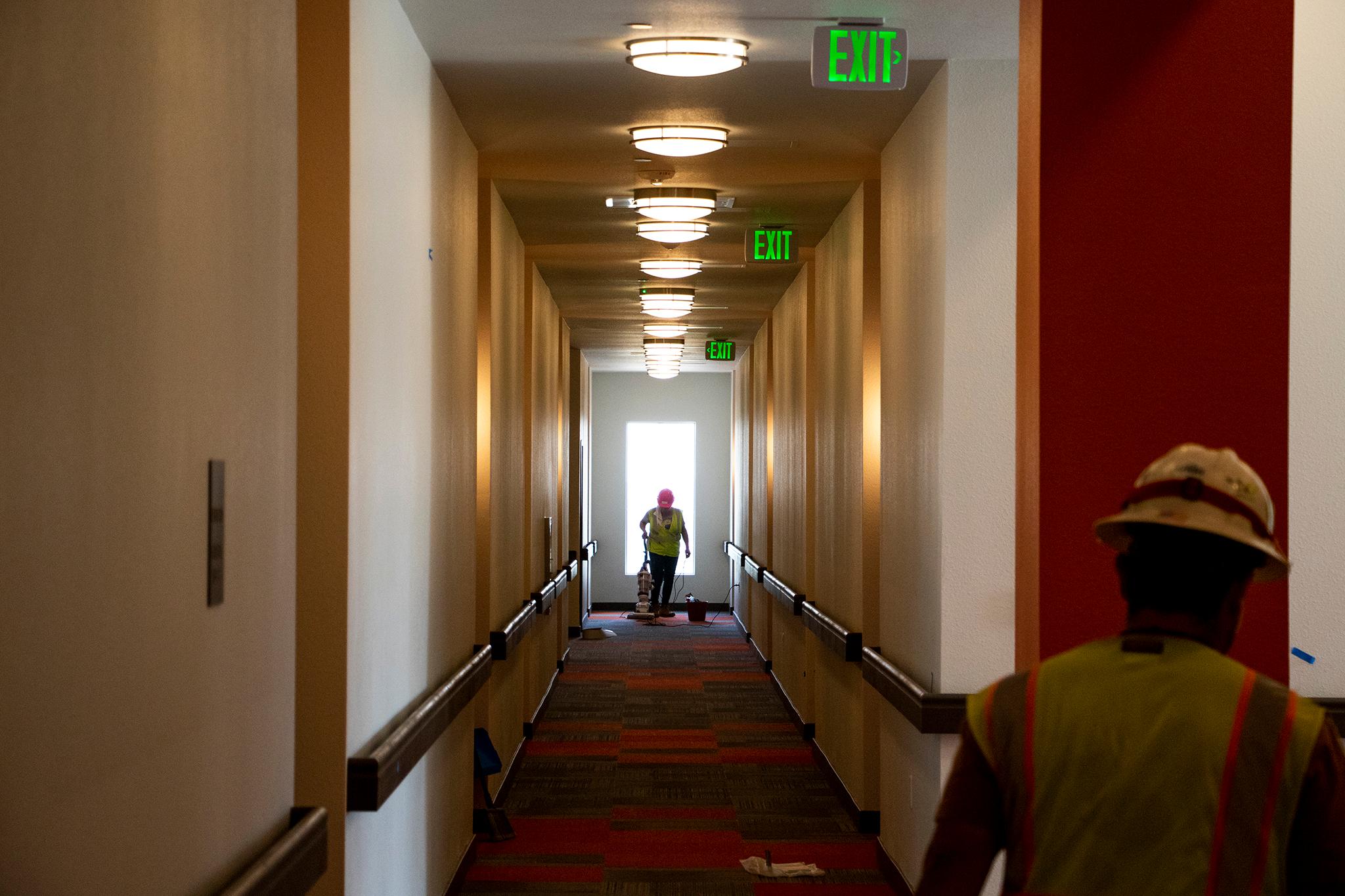The interiors are painted trendy shades of grey and bathed in natural light. Kitchens flow into loft-like eating and living areas. Lobby amenities are aimed at bringing residents together for conversation and activities. Public transit is nearby, as are walking and biking trails.
Even the name -- Crossing Pointe North -- brings to mind one of those high-rises near downtown Denver aimed at millennial professionals. But the brand new complex is in the Denver suburb of Thornton, and the tenants who began moving in on Friday are seniors on fixed incomes attracted by rents they can afford. Crossing Pointe was developed by Unison Housing Partners, the Adams County equivalent of the Denver Housing Authority, and is one way Denver's suburbs have been responding to a regional housing crisis.
Regina Velarde's children had been helping her pay the rent at another Adams County complex. The octogenarian widow, who depends on social security and her husband's military pension, said her housing costs had risen from $1,200 to $1,500 in the last three years.
"It's outrageous," she said, saying she did not want her children "paying this kind of money. It's too much. They work too hard."
Velarde spoke as she prepared to move into a one-bedroom ground-floor apartment at Crossing Pointe North. The building has 64 apartments for seniors earning between 30 and 60 percent of the area median income. Government subsidies mean tenants will pay no more than 30 percent of their income on rent. A one-bedroom would cost a tenant earning 60 percent of AMI $1,041. At 30 percent, the rent would be $522. Rents include utilities.
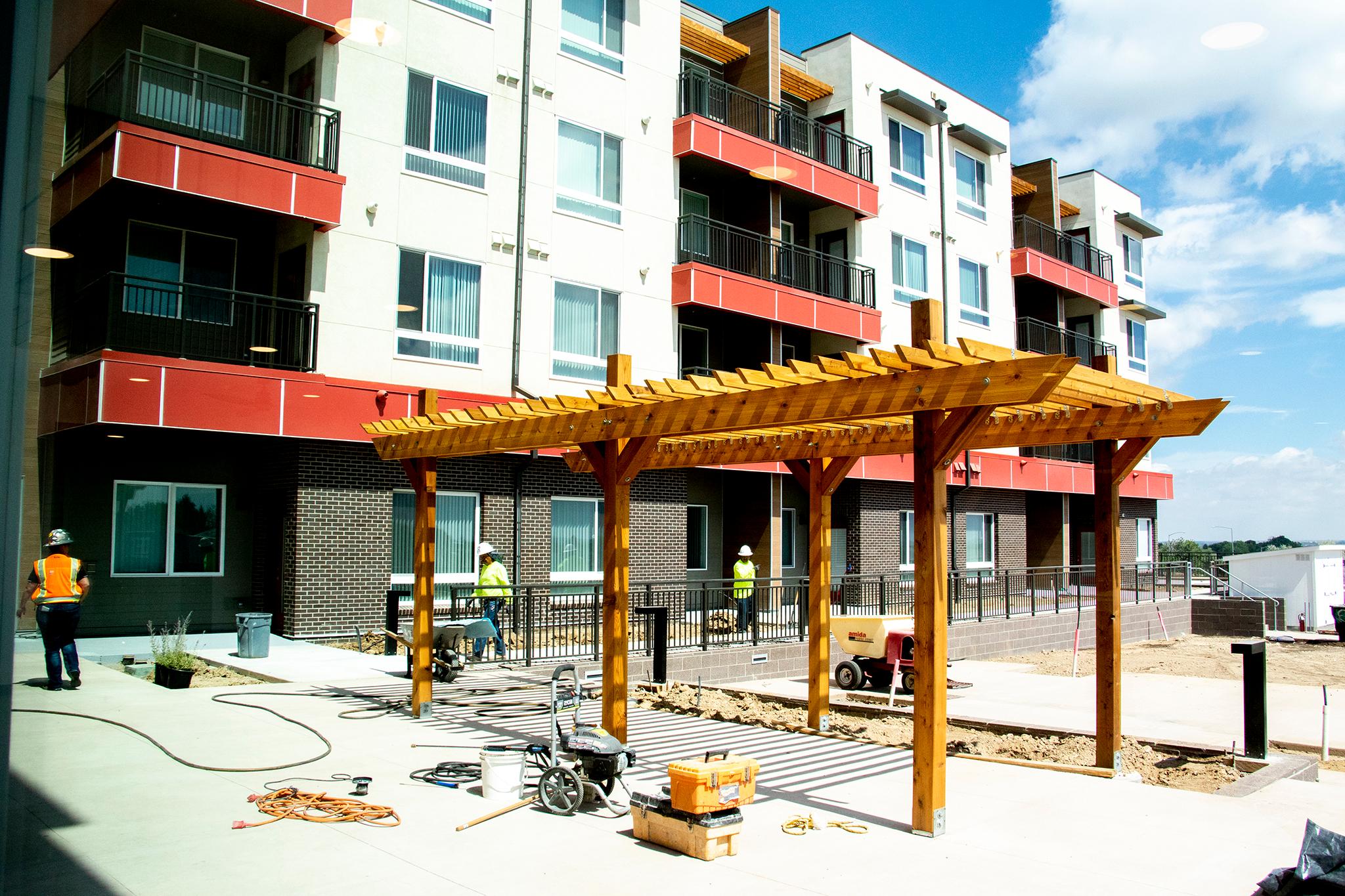
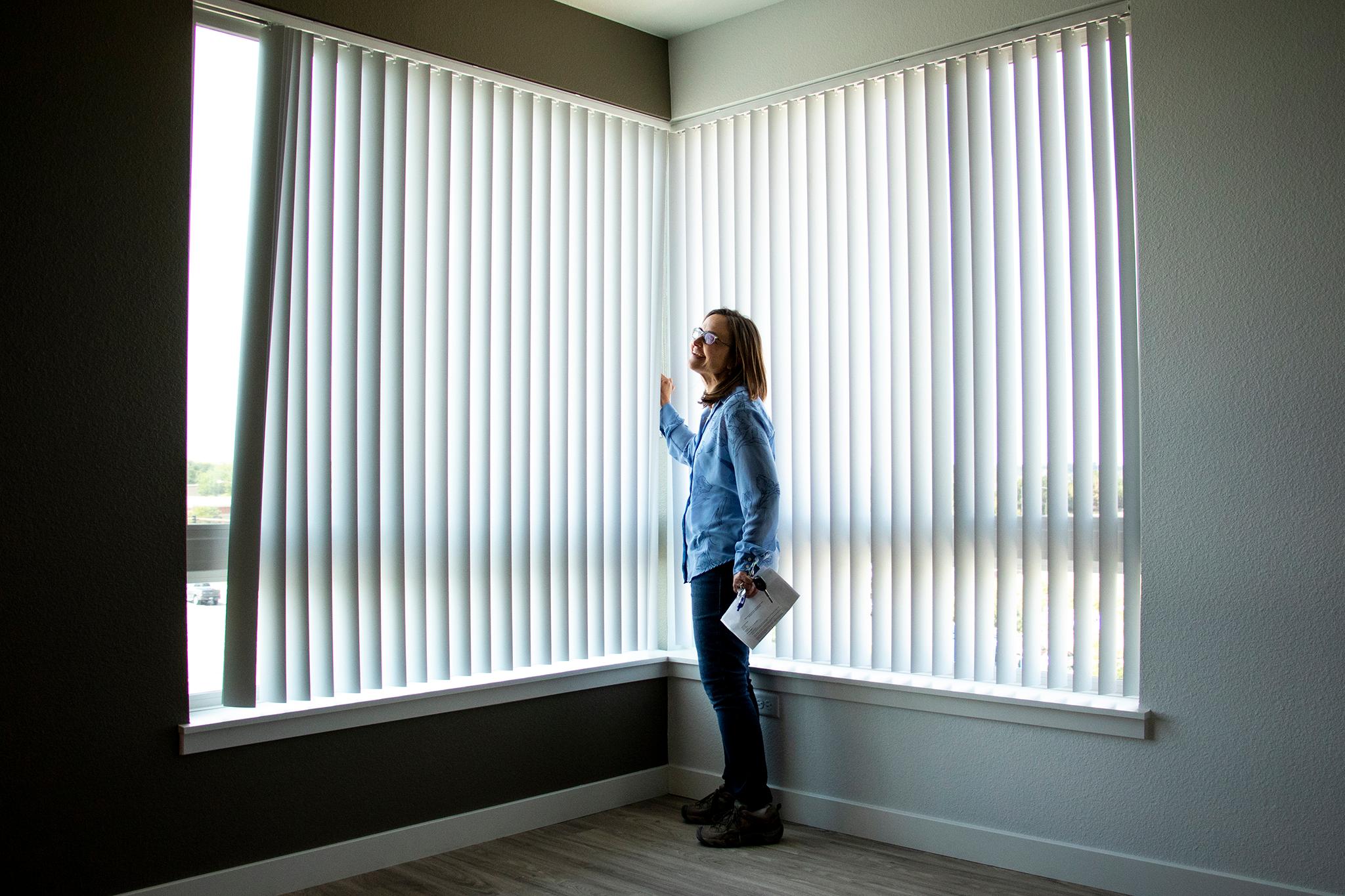
"We have so many seniors that are struggling," said Jessica Sandgren, a teacher who represents Ward 2 on the Thornton City Council.
Seniors are a particular focus for Thornton leaders concerned about ensuring everyone can find housing in their city of just under 140,000 -- up from 118,000 in 2010.
In a 2014 assessment of housing needs prepared for the city, consultants said nearly three-quarters of rental households with people 65 or older spent more than 30 percent of their incomes on rent, making them what experts call "housing burdened." About half of all renters in the city were housing burdened, leaving them stretched when it comes to other expenses such as health care, food and transportation.
The city of Thornton provided more than $1.2 million in financial incentives, including waiving water tap fees and rebating permit costs, to get Crossing Pointe North built. It was the first such step for housing in Thornton.
"What we're seeing now is willingness to think outside the lines," Peter LiFari, Unison's executive director, said of Thornton government officials.
The project also received federal tax credits in which Wells Fargo Affordable Housing Community Development Corporation invested.
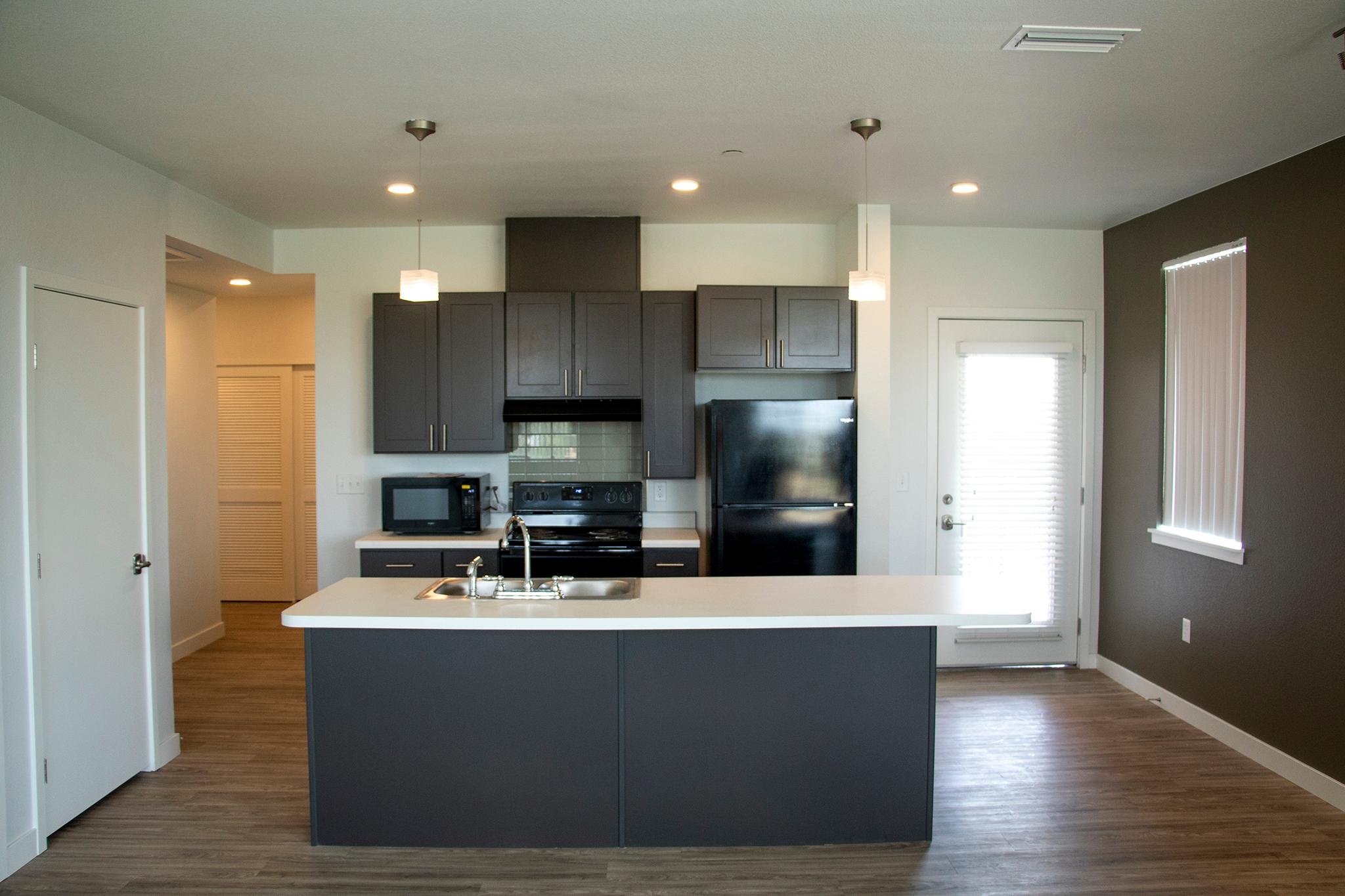
While Crossing Pointe North is for people 62 years and older, it is part of a planned complex that will eventually have affordable units for younger families.
"Thornton is ready to come to the table," said Councilwoman Sandgren, adding the Crossing Pointe North experience would help her city develop more projects like it, and not just for seniors.
For one thing, she said, Thornton residents who have preconceptions about affordable housing might be pleasantly surprised by the attractive building.
"People are nervous about growth. We hear that," Sandgren said. "But people are here. They want to live here. People are going to keep coming. You're going to have to house them."

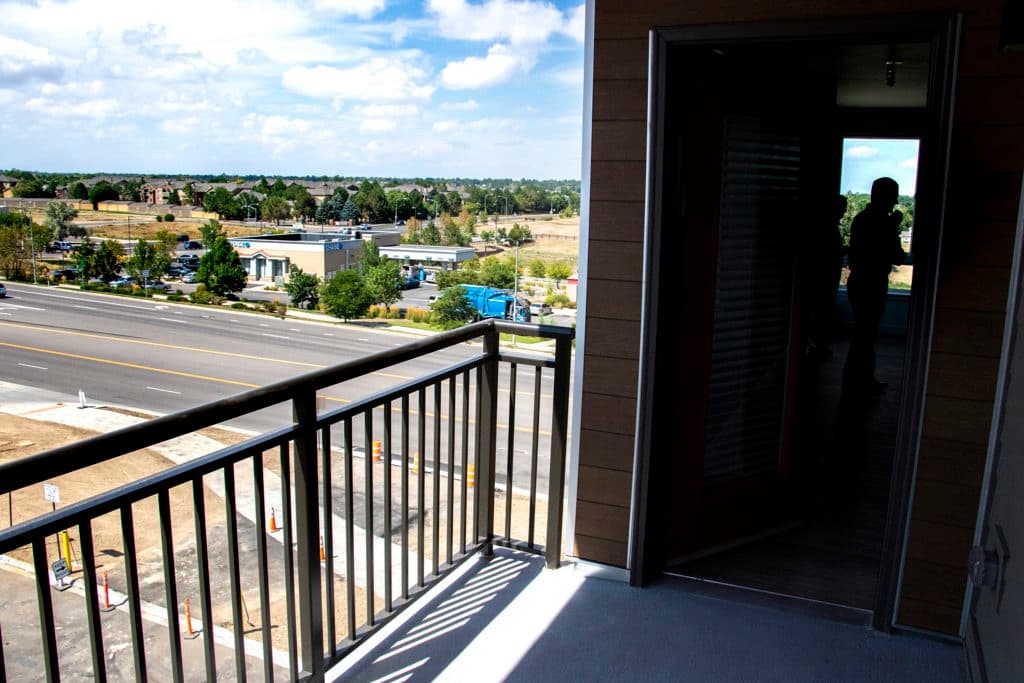
Sandgren said growth came not only from newcomers but from the children of longtime residents, some of whom might have moved away for school or work but are now returning as job opportunities in places such as outlet malls and an Amazon distribution center spring up along the Interstate 25 corridor. Some of those entry level positions don’t pay enough for a family to afford to buy in Thornton, Sandgren said.
According to an analysis prepared for the Colorado Center on Law and Policy, an Adams County family with one adult and one preschooler, for example, needs an annual income of $53,669 to cover housing and other basics without government or private philanthropic help. Just over 28 percent of Adams County families aren’t earning enough to be self sufficient. In Denver, it’s 29 percent.
Cassie Ratliff, who directs homelessness programs for Family Tree, a nonprofit working across metro Denver, said Crossing Pointe was a "much needed resource in our community." She was particularly enthusiastic about Unison's multi-generational approach. Across the region, wait lists are long at affordable complexes for seniors, and homeless shelters report an increasing number of older people looking for a bed.
Some of the movement into Adams County is from low-income families seeking to escape the high costs of Denver.
That's according to Paolo Diaz, a former Commerce City councilman. They are welcome, said Diaz, who in the past year took on a a fairly new position as head of poverty reduction and neighborhood outreach for the Adams County government.
"We're not trying to chase these people out of Adams County if they're leaving Denver or Broomfield or Weld because they find it's too expensive," Diaz said. "Let's figure out what services you need in Adams County so that you can find some opportunities here."
Diaz said officials at the city, county and regional levels need to work together to ensure affordable housing and other needs are available. Adams County also has studied its housing needs. The resulting report, adopted by the county commission last year, notes that since 2000, home values in the county rose 32.7 percent and median gross rent 47.4 percent. Meanwhile median household income lagged, rising 24.6 percent. Poverty in the county increased from 8.9 percent to 11.7 percent between 2000 and 2016.
Sandgren said Thornton had long thought of itself as a bedroom community. That's reflected in a housing mix heavy on single-family homes. The 2014 assessment noted a lack of options at different prices dispersed equally throughout Thornton, the largest city in Adams County.
Now, Sandgren said, "we really are finally seeing multiple types of housing in a development. We're definitely seeing that movement from developers."
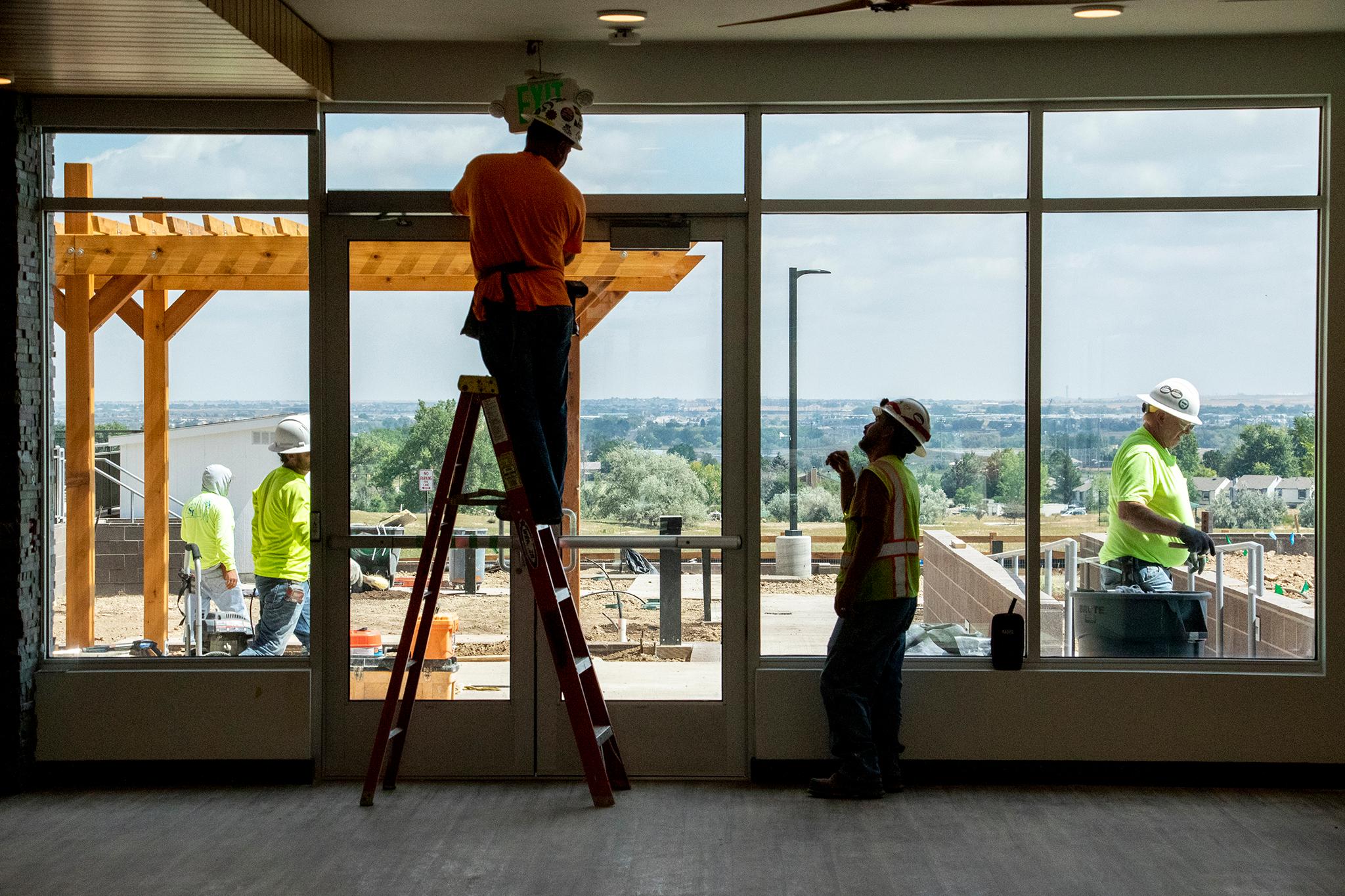
When plans for Crossing Pointe North were finalized, Sandgren said she advised an elderly neighbor to move quickly to get a place. The building was 80 percent leased the week it opened. Sandgren's neighbor got a unit.
Velarde, dependent on social security and her late husband's pension, also contacted housing officials early after hearing about Crossing Pointe North. She had been looking for years for more affordable housing close to her children and grandchildren. Her doctors are nearby, which is key, she said.
The building at 4220 E. 104th Ave. is near the Thornton Crossroads station on the N, a line under construction that will connect Thornton to Denver's Union Station via the National Western Center. The building is also near two of Thornton's open space parks.
Velarde appreciates amenities in the building like the rank of mailbox cubbies near the lobby fireplace. Sarah Vogl, senior developer for Unison, said older people interviewed during the design process said they liked to chat with their neighbors over the mail.
Velarde also had taken note that all the apartments were equipped with showers with grab handles, not tubs she finds hard to get in and out of. Her new kitchen was spacious, and her grandchildren and great grandchildren will enjoy the nearby open space. But the main draw, she said, was the price. At her old place, she had come to dread the first of the month.
"It has been a worry, I tell you," she said. Now, "I'll be able to make the rent."

